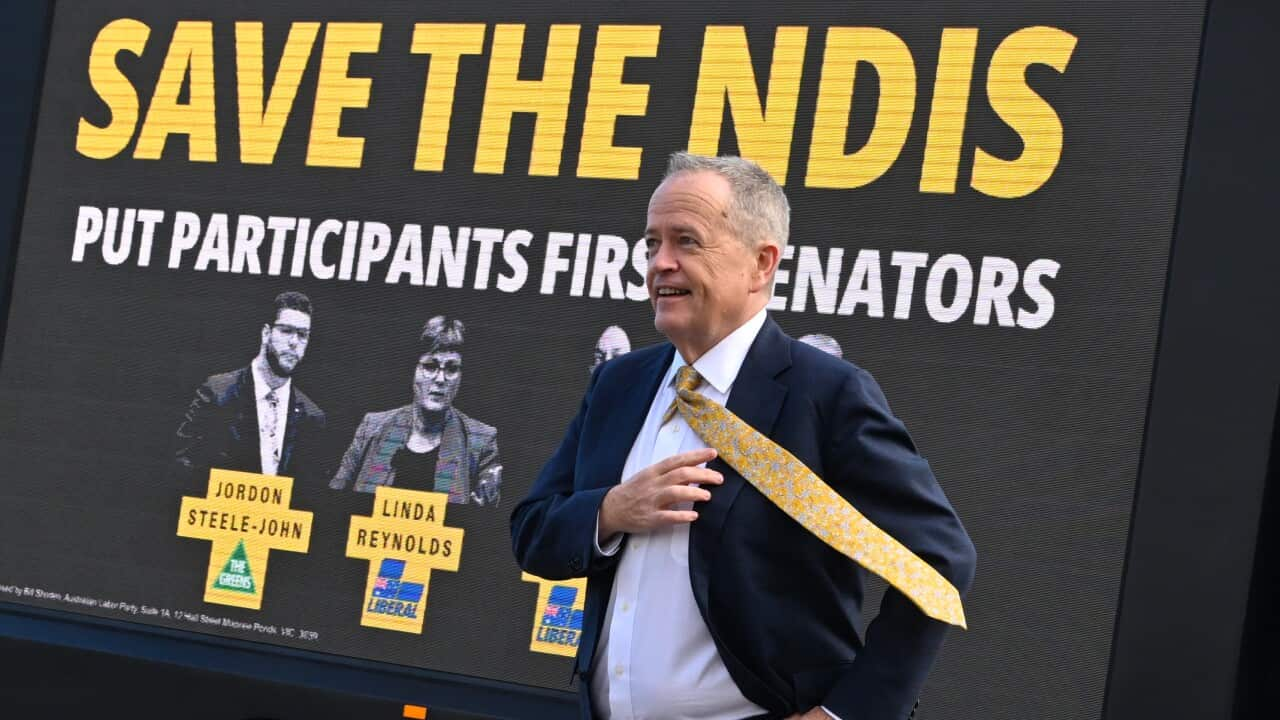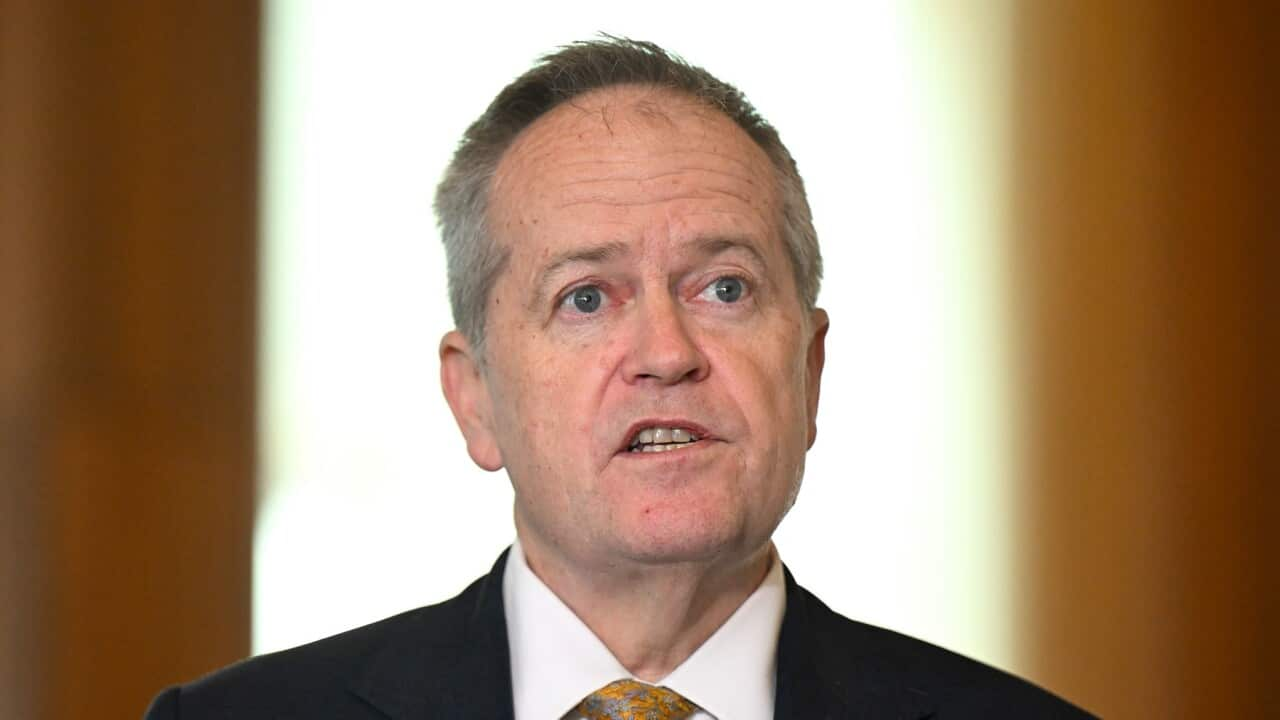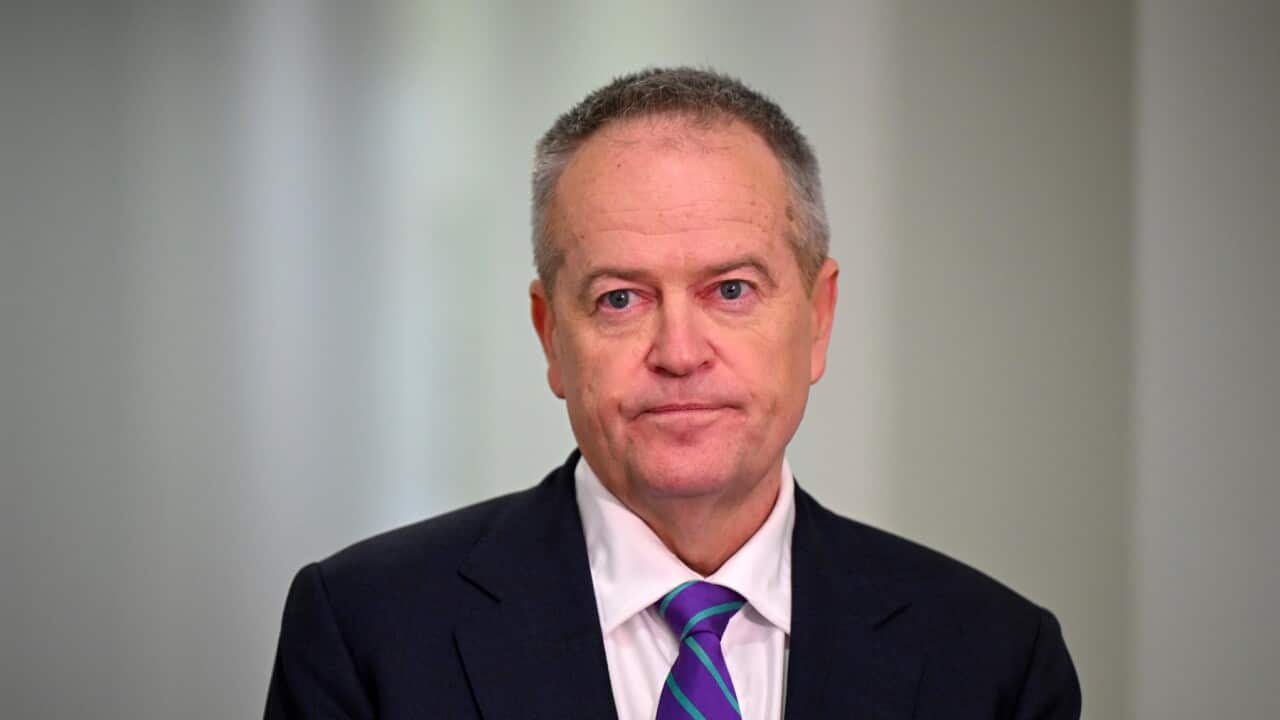TRANSCRIPT
In Bill Shorten's valedictory speech to Parliament, he declared a special interest in one policy area above all others.
“Closest to my heart - and I know many members here - the National Disability Insurance Scheme.”
Shorten was one of the co-architects of the scheme when he was a junior minister.
And he's hoping the NDIS will now be his major legacy.
As part of that legacy, he introduced legislation to limit spending growth in the scheme to eight percent a year, which Treasurer Jim Chalmers has said will ultimately make the scheme sustainable.
“Spending on NDIS will continue to grow, spending on aged care will continue to grow, but what we’ve been able to show is a willingness and an ability to make sure that both of those grow more sustainably.”
Bill Shorten says plans to change the way some services are funded - like art and music therapy - are therefore about containing unnecessary cost.
He's told Sky News that these therapists can charge whatever they like - but there must be evidence it's necessary and effective.
“At the moment, an art or music therapist can charge $193 an hour for providing a service. And we've said that we want to review that. We're happy for that to continue - provided we can see evidence that it's maintaining or improving the functional capacity of a participant... Now in the event it's not having that material effect but it's still a good thing for people to do, you'll be able to charge a community rate of $68 an hour.”
Amid the push to contain the NDIS budget, there have also been reports of participants being forced out of the scheme altogether.
Scott McNaughton is the Deputy CEO of Service Delivery at the National Disability Insurance Agency, or NDIA.
“As you may be aware, under the Act there are two ways to enter the Scheme: through section 24 or section 25. Section 25 is the early intervention pathway. So it's mainly children will come in under the early intervention pathway. They may stay on the scheme for one, two, three, four, or five years and get their early supports. And then there will be a re-assessment of their eligibility. Many of those children will graduate into mainstream and community services. Some will do an eligibility reassessment and we'll move them into a section 24. I know I'm being technical, but that means you need lifelong supports from the scheme.”
Mr McNaughton has told a Senate Estimates hearing that since the legislation was passed in October, there have been around 1200 reassessments done each week to confirm someone's eligibility.
“In the last six weeks we did 7,487 eligibility re-assessments. Of those, Senator, 32 percent changed their status. So they moved from Section 25 to Section 24. So 32 percent stayed on the Scheme but moved into permanent disability. A further 48 percent exited the Scheme - so they were revoked - and the remaining percent we're still seeking more information.”
The focus on the NDIS budget has clearly been effective.
The recently released revised expenditure figures show the scheme's growth in the current financial year will be 12 per cent, down from 19 per cent in the previous 12 months.
The Minister has moved to reassure participants in an interview with Adelaide radio station 5AA that the budget cuts don't mean less support.
“Yes, it is possible to improve the scheme without undermining its fundamental values... We're just running the scheme better. That doesn't mean that we're not providing services. There'll be more people on the scheme next year than this year. There'll be more money invested in people next year than this year.”
But for many providers, participants and advocates, this kind of rhetoric doesn't match the information they have - and their experience.
The NDIS commission's annual report shows there's been a 78 percent increase in complaints over the past financial year about the scheme - most of them concerning worker conduct and provider practice.
Advocates are essentially worried that in the rush to contain spending, the cost of providing support to disabled Australians could be pushed somewhere else - and the importance of helping disabled Australians to live fuller lives forgotten altogether.
Australian Federation of Disability Organisations CEO Ross Joyce says everyone wants the scheme to be financially sustainable - but he says there are a number of issues that aren't being addressed - including what happens to people with a disability if the NDIS is not an option.
“There seems to be an assumption that there's actually something for them to get in terms of supports that are outside of the NDIS. That's not the case as we know from what's come out of our Disability Royal Commission. And that's not the case as what was recommended from the NDIS review late last year, where they said we needed to have foundational supports as they termed them, where people who aren't part of the scheme are able to get the sort of supports that they need in community to live a good life.”
Queensland woman Chanelle Morris has vision impairment.
She says that the prospect of losing funding is something many participants dread, because of the current lack of alternatives.
“A lot of us see the NDIS - and myself in particular - we see the NDIS as like a lifeline almost. It's like we need it to live our life. That's how I leave the house, that's how I go grocery shopping; I do everything. So to have that possibly taken from me it's like they've taken away my life, as awful as that sounds. It's so - we live in fear I suppose. Hearing stories like that, it's like - when is it going to happen to me?”
The loss of NDIS plans appears to be hitting some groups especially hard.
Sarah Langton from the Australian Neurodiverse Parents Association says many of those whose NDIS eligibility has been revoked in the past six weeks are autistic children aging out of the early intervention pathway.
The group argues that it makes no sense for so many to be losing their NDIS plans at the same time a national autism strategy is still being developed, and autistic children and adults already struggle to find support.
Greens Senator Jordon Steele-John says while it's been primarily neurodivergent children caught up in this reassessment process - there have been others too.
“It is not just kids that have been caught up in this so far. We've had cases of people with motor neurone disease, with complex psychosocial disabilities, who have been receiving supports under the NDIS for years, and have been reassessed, and have been removed from the supports that they need.”
The non-NDIS services are being referred to in the debate and government discussions as foundational supports.
The states and territories are in the process of negotiating with the federal government as to what these might look like - and governments and disability groups are also consulting with the community.
Bill Shorten has told Radio 5AA in Adelaide that South Australia is taking a particular lead in those discussions.
“The states have been good. Peter Malinauskas - Mally - he's a rock star. He's been helping lead the states and working with Nat Cook here to make sure we start develop - with Amanda Rishworth - services outside the scheme.”
But as those consulations continue, they've raised further questions about disabilities that are currently not even considered eligible for the NDIS - like ADHD, which impacts over one million Australians, an estimated one in 20.
The final report of a 2023 inquiry into the condition identified a lack of support for those with ADHD, and the high cost of existing services because of insufficient coverage under Medicare.
The report said key groups faced specific challenges, including women, gender‑diverse people, First Nations peoples and those from culturally and linguistically diverse backgrounds.
Cabinet Minister Katy Gallagher has told Senate Estimates she doesn't have a firm date on how the government intends to address these issues - but she doesn't expect it to be too much longer.
“The response has been finalised and will be tabled soon... I don't think I would be advised to be saying soon unless it was soon. In the traditional definition of soon. Which is soon.”
In the meantime, advocates remain concerned about the speed of the changes to the NDIS, and what they say is a lack of transparency in access and eligibility reassessments.
Ross Joyce again.
“Quite a number of people have been receiving these eligibility reassessment letters... and I've seen a couple of the letters. Obviously redacted with names kept confidential. They really look very bureaucratic. They don't go into sufficient detail. They give a whole heap of detail about what they've already got... just not providing sufficient detail in there about what people need to do in order to respond to what they're requiring - they're saying that you need to re-establish eligibility. They're not telling them what they need to do, to do that.”
“The other key problem with it is that they're asking people to do this within a very rapid response time of 28 days... If somebody needs to as an example go get a re-assessment that could take one to two months before they can get a reassessment depending on what they need - and even longer.”
Transparency is a theme that the Greens have consistently returned to in the Parliament when it comes to the NDIS.
Senator Steele-John has told SBS the party believes the government has never been entirely upfront about what it's doing - even when it came to the legislation itself.
He's has made allegations in the Upper House about the use of non-disclosure agreements in the process.
“There was not a lot of consultation with the disability community at all in relation to the bill itself. It was in fact only released to the public on the day that it was introduced into the Parliament. And the disability organisations that had seen it before that point had all been requested - and basically ordered - to sign non-disclosure agreements in order to see the bill before it was implemented or introduced to the Parliament.”
The Senator says hundreds of such agreements were identified across multiple issues and departments, via parliamentary processes and whistleblowing.
“Many individuals began to speak publicly about this experience, either through the Senate inquiry that the Greens instigated or in public just after refusing or declining to participate in these processes. And then after that point, we just kind of began requesting documents from the Department of Social Services, the Prime Minister and Cabinet, and Services Australia. And we've started to get that information back, and that has revealed the kind of numbers that we are dealing with here.”
SBS put these concerns about eligibility reassessments and non-disclosure agreements to the National Disability Insurance Agency.
The agency has provided a statement that says:
"Eligibility reassessments are not new and are normal practice in the National Disability Insurance Scheme (NDIS), having been legislated since the Scheme commenced. There have also been no changes to the current operation of our eligibility reassessment approach as a result of recent legislation changes. The eligibility reassessment process is aimed at ensuring the National Disability Insurance Agency (NDIA) has the correct information to allow us to support participants with the most appropriate outcomes.”
The agency also says any confidentiality agreements signed by members of Participant Reference Groups and the Independent Advisory Council - which are groups attached to the NDIA and offer ongoing advice - apply only to activities conducted in connection with their role as members of those committees.
For Bill Shorten, he remains convinced the NDIS is on the right path - and that it will be his proud legacy.
He says that while there's been criticism about the overhaul of the scheme designed to reduce that growth, the scheme is still improving the lives of people with disabilities.
The Minister believes the NDIS represents Parliament at its best.
‘I think the result was the most significant social reform in this century for Australia. But it is something the whole parliament should take ownership and pride of. The NDIS belongs alongside Medicare and superannuation as examples of Australian exceptionalism in building a fair go.”
Yet for Chanelle, if dignity and choice are inherently part of the NDIS, they remain elusive when she and others in the scheme are being told exactly what they can and can't spend their plan funding on.
She says few are certain of the future.
“Oh my gosh. In the current state of all the uncertainty, I feel like our dignity is all in question, I think. Because it's all possibly being taken away... It's just - yeah, I can't even describe.”













